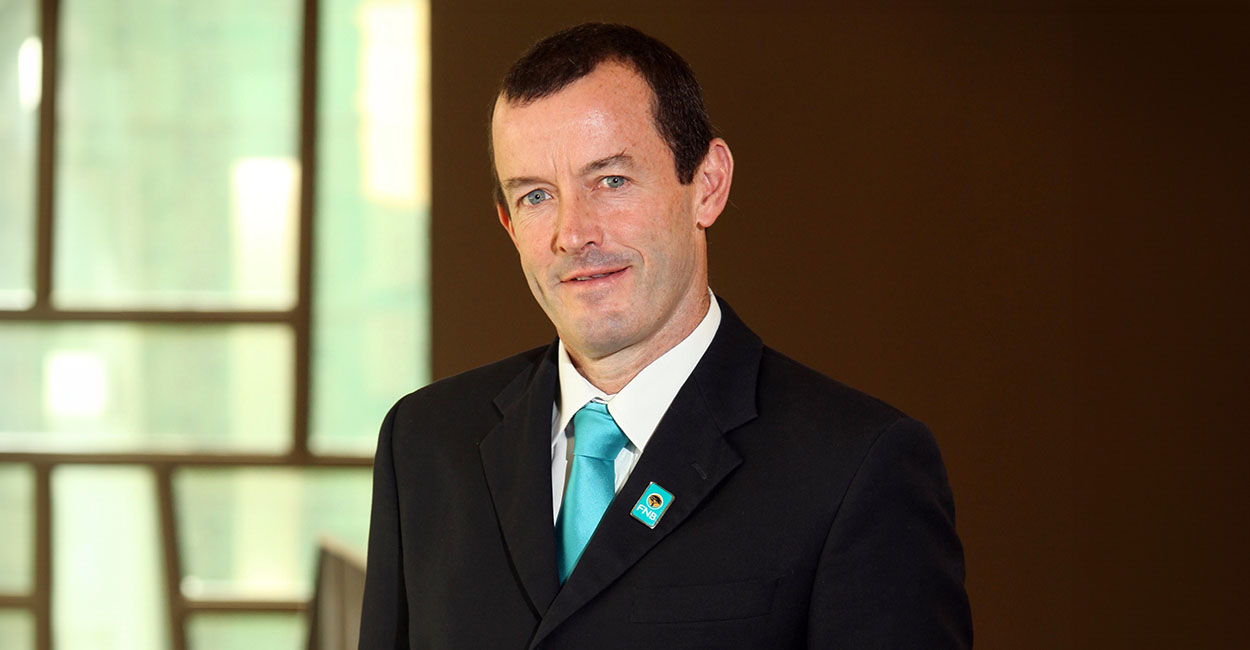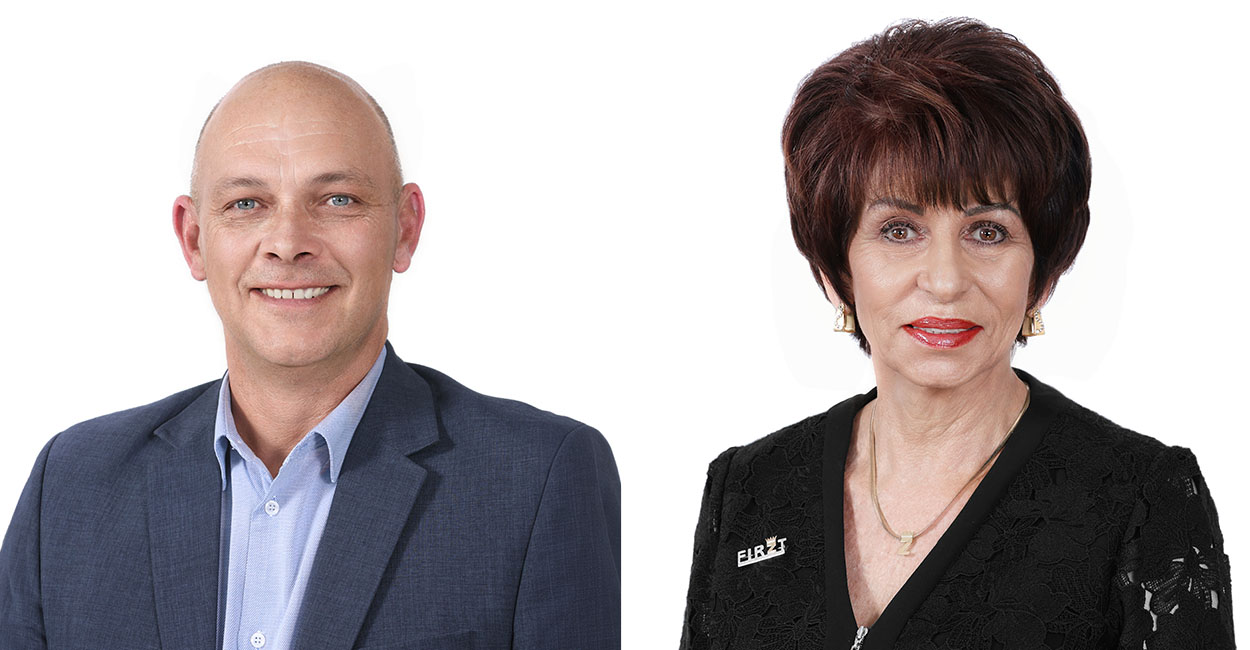MAIN IMAGE: Theo Mseka, CEO of Private Property
Editor
As the new leader at Private Property, seasoned internet executive Theo Mseka brings a clear vision to the table. “I believe that every person deserves a roof over their head, a space to call home, and my mission is to make the process of finding, buying, and staying in a home as seamless as possible for everyone”, says Mseka.
Property Professional recently had the opportunity to learn more about the visionary behind the (previously) beleaguered property portal.
You have extensive experience working with property platforms. What drew you to the industry?
My initial entry into the real estate industry was somewhat serendipitous. In 2001, my business partner and I developed a GIS map based on the Open GIS Consortium specifications at GoMedia—this was four years before Google Maps was even on the scene. We began by plotting land parcels and displaying property-specific data like municipal rates, which at the time was groundbreaking.
This innovation caught the attention of the City of Cape Town, marking our first foray into real estate technology. From there, we built our second business, MyAgent, which was one of South Africa’s first Automated Valuation Tools. That led to me joining Property24 at a time when they needed to be rebuilt from the ground up.
You’ve been instrumental in pushing innovation and technological solutions throughout your career. Tell us more:
With a proven track record of over twenty years, I’ve consistently driven change and improvement by implementing cutting-edge systems and processes.
My career has seen me in several senior management positions, including CEO / COO of Private Property, Head of Marketplaces for BetterHome Group, CEO of Hepsiemlak, the largest real estate vertical classified business in Turkey, and Chief Product Officer at Property24 and AutoTrader in South Africa.
Throughout my career, I have leveraged the experience gained in building and running my first business, GoMedia, one of South Africa’s first bespoke web development agencies, where we had a global network of over 800 clients for whom we built technology solutions for different industries.
At first, we built brochure-style websites for art galleries, which evolved into banking solutions for Investec Private Wealth and ticketing engines used for the 2010 FIFA World Cup and the 2011 Rugby World Cup. Many other solutions are still used today by companies like Direct Axis, Nightsbridge (a real-time availability engine for the guest house industry), and Oil Spill Response Systems used by Total in a few territories in Africa and Romania.
Before moving to Turkey, you were instrumental in Property24’s growth and success. Can you tell us a bit about the lessons you learned during this period?
South Africa has unique problems, so the platforms that operate here have to be innovative. In fact, some of the solutions that exist here are amongst the most innovative solutions in the world.
My time at Property24 was profoundly educational, particularly in helping me understand the power of persistence and strategic vision in overcoming local market challenges. For instance, when we launched Domofond.ru in 2014, we grew from zero to 8 million monthly active users in just over a year, becoming the leading property platform in Russia.
This success underscored the effectiveness of combining solid technology with robust marketing strategies, a lesson I’ve carried into every role since. These experiences have sharpened my strategic acumen, particularly in optimising platform efficiency and lead generation.
The same goes for AutoTrader, a unit I was responsible for in my tenure at Naspers, and it was our task to rebuild this technology platform and, eventually, the business model. We forked the Property24 codebase, removing bedrooms, bathrooms, swimming pool, etc. and adding make, model, engine capacity, colour, etc., relevant to the motor industry. This strategy proved successful as we had a solid foundation that was then leveraged to create completely different experiences for different markets and niches. Autotrader today is the leading vehicle marketplace in SA.
Being at Private Property now, there is no greater motivation than to do better than I did during the past – nothing like competing with your former self who was younger and more energetic, but I have the experience, knowledge and skillset now to do things better, faster and more effectively.
What do you believe customers and agents deserve from the property portals?
Agents deserve the added value of a portal with multiple solutions to connect them with the right customer for their property. PropTech will continue to thrive, and innovations in this space in South Africa will continue to drive change in the industry to ultimately benefit the consumer. The end goal is that a consumer will hopefully find and purchase their home in a shorter period of time, and it will cost less to transfer the property to their name. Agents and developers will be happy if they can sell more property faster.
- Speed is important. A consumer searching only has 8 to 10 minutes to browse; in that time, the website or app needs to surface as many unique properties relevant to the user as possible.
- Personalisation of the user journey based on their unique needs plays an important role in user retention in the medium term.
- The biggest learning is to maintain a simple and clean user experience (UI / UX) catering to the core audience. Power users will also be able to figure out complex systems, but the average man on the street doesn’t want to have to think about how a system should work.
- Lastly, small features that delight the user are essential to build the stickiness of the portal.
What do you see as some of the challenges and opportunities for what some would call the underdog in terms of portals in SA today?
The major opportunities lie within our product and technology offerings, marketing initiatives, and sales offerings and processes. Technology that makes it possible to quickly narrow down your list of properties and enables seamless communication with real estate agents is key.
From an agent’s point of view, portals need to generate quality leads—quantity is important, too—but connect them with the person who ends up buying the home rather than with thousands of casual browsers. Technology will play a part in helping find real buyers in the market—we have a few products that we will bring to the market over time that will help streamline the process for agents.
Our lead generation engine has been rebuilt over the last year, and we are starting to see good results in some pockets, but this will evolve soon as we complete the next wave of changes to our marketing plan.
Over the coming months, we will introduce new product offerings to the market and recalibrate our business with these newer products. Private Property has a world-class support and operational team that supports our customer base, and we look forward to helping them be more efficient as we scale overall as a business.
You spent four years in Turkey with hepsiemlak. How do the SA property portals compare to Turkey’s?
The Turkish market is about 10 times bigger than South Africa, with over 2,6 million transactions each year, roughly 60,000 agencies and about 400,000 agents. For many years the construction industry was about 8% of Turkish GDP overall.
Working at that scale, you learn that the simple things make a big difference. Speed is important. A consumer only has 8 to 10 minutes to browse, and in that time, the websites or apps need to surface as many unique properties that are relevant to the user as possible.
Personalising the user journey based on their unique needs plays an important role in user retention in the medium term. Portals, in particular, have to give more information to the consumer so they can make an informed decision ahead of the biggest transaction of their lives (for 99% of consumers).
Besides some systems in Turkey being quite manual, there are some efficiencies we can learn from. For example, it takes 2 days from signing an offer to purchase (OTP) to register the property in the Turkish Deeds Office (TAPU). On average, in South Africa, it takes 3 to 4 months, and I believe we collectively can drive this time downwards and reduce the costs over time. This work is not only for the portals to solve but also for the entire ecosystem to band together to drive efficiencies in all segments of the industry.
What are your goals for Private Property?
At Private Property, collaboration is the cornerstone of our strategy. We aim to create an inclusive platform where all market players can thrive, including agents, agencies, and developers. By integrating various services related to the real estate transaction process, from financing to post-sale services, we enhance the value we offer to every user.
Our vision is to transform Private Property into a comprehensive marketplace that facilitates property transactions and enriches the overall property ownership and rental experience.
We look to collaborate with the entire market to drive innovation and growth for the overall ecosystem. This benefits everyone involved, from the consumer to the agent and developer, as well as the banks providing the finance and everyone in between.








